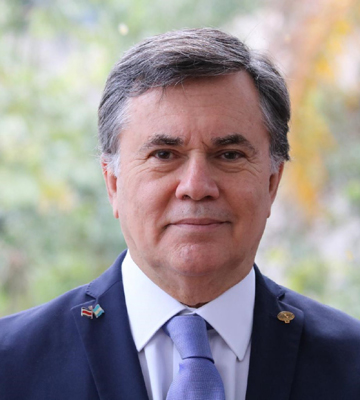
OFFICE OF THE DIRECTOR GENERAL
Master of Science in Agricultural Development from the Wye College of the University of London, Master in Animal Production from the Tropical Agricultural Research and Higher Education Center (CATIE), headquartered in Costa Rica, and qualified Veterinarian from the Faculty of Veterinary Sciences at the University of Buenos Aires (UBA).
He has participated as a guest lecturer in the most relevant global events on agriculture and food. As a regular columnist for the most important newspapers in Latin America, the Caribbean and Spain, as well as for publications specializing in agricultural and veterinary sciences, he writes about issues related to food security, science, technology and innovation. He began his career at IICA, the agency specializing in agricultural and rural development, in 1988 at its Headquarters.
He has worked as an Advisor to the Director General, as Director of Programming and Evaluation, as Director of the Andean Regional Center, and as IICA Representative to Uruguay and to Brazil, a position he held on two occasions.
He has authored numerous technical documents on international trade, sectoral policies and agricultural modernization.
Previously, he served in Washington D.C. as an Agricultural Attaché, attached to the Ministry of Agriculture of Argentina and was also Vice-President of Argentina’s National Institute of Agricultural Technology (INTA).
Elected in 2017 as Director General of the Inter-American Institute for Cooperation on Agriculture (IICA) for 2018-2022 and re-elected in 2021 for the 2022-2026 term, Dr. Otero has focused his administration on consolidating the modernization of the agency of the Inter-American System, while ensuring that it fulfills its mission to promote the agricultural and rural development of its 34 Member States, through the provision of technical cooperation of excellence.
To this end, the administration spearheaded an innovative partnership policy that has resulted in the development of work agendas at the multilateral, bilateral, national and local levels, and also in coordination with the private sector, in order to strengthen the agriculture sector and its institutional frameworks, create a balance between productivity and sustainability, generate new development opportunities, promote rural well-being in the Americas and contribute to the achievement of the Sustainable Development Goals (SDGs) of the United Nations (UN), within the framework of renewed technical cooperation models.
In recognition of his leadership in the agrifood sector of the Western Hemisphere, the United Nations Food Systems Summit 2021 appointed Dr. Otero as a member of the Multi-Actor Food Systems Champions Network, representing the agriculture and rural sectors of North America, Latin America and the Caribbean. In that capacity, he reaffirmed his commitment to defending and spurring the increased resilience and sustainability of the agriculture sector in the Americas.
At the helm of IICA’s hemispheric platform, Dr. Otero has created unprecedented opportunities to engage in dialogue with other regions of the world. In that regard, he initiated a relationship and exchanges with Africa, which resulted in the development of a roadmap and joint agenda with organizations such as the Alliance for a Green Revolution in Africa (AGRA) and the African Union Development Agency - New Partnership for Africa’s Development (AUDA-NEPAD). Together with the latter organization, IICA organized the first Africa-Americas Ministerial Summit on Agrifood Systems, which was attended by ministers, deputy ministers and experts in the fields of agriculture, the environment, science and technology from 40 countries in both regions.
Under Dr. Otero’s leadership, IICA also played a pivotal part in mobilizing the countries of the Americas to arrive at the Food Systems Summit with a consensus position, which was embodied in a document containing 16 key messages on agriculture.
The messages highlight the essential role of agriculture and the key role of agricultural producers and food systems workers, maintaining that without agricultural production there would be no raw materials to produce food. They also point out that agriculture is critical to eradicating poverty, driving rural development and protecting the environment.
Another important milestone in Dr. Otero’s administration was his successful promotion of active participation by the public and private agriculture sectors of the Americas at COP27 in Egypt, where the region presented a joint, agreed-upon position developed under the Institute’s coordination. This enabled the region to bring agriculture to the forefront of climate negotiations at the event.
The consensus position was outlined in a document entitled “Tackling the Climate Crisis through Agricultural Innovation and Leadership in the Americas”, which was launched at the Home of Sustainable Agriculture of the Americas pavilion, which IICA erected at COP27, the premier global forum for climate negotiations. The pavilion allowed for demonstrating the climate resilience of the agriculture sector of the Americas, as well as for providing other agrifood systems of the world with concrete examples of climate change mitigation and adaptation.
In recognition of his contributions to agriculture, food and sustainable development, Dr. Otero was invited to become part of the Global Future Council on the Future of Food and Water Security of the World Economic Forum. A forum for the exchange and discussion of ideas, strategic foresight and results, the Council fosters innovations and supports the linkages between food security and water; it is comprised of 20 leading global figures who have made relevant contributions in those areas.
In 2022, the Ministry of Foreign Affairs of Paraguay presented Dr. Otero with the “Don José Falcón” National Order of Merit, and he received an Honorary Doctorate from the Tropical Agricultural Research and Higher Education Center (CATIE) in recognition of his work to promote sustainable agriculture and rural development in the Americas, collective action among countries in the region, the increased digitalization of agriculture, tropical agriculture and the positioning of the agriculture sector.
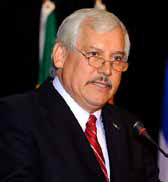
Dr. Víctor M. Villalobos
2010 - 2018
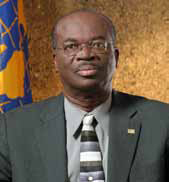
Dr. Chelston W.D. Brathwaite
2002 - 2010
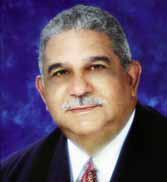
Dr. Carlos E. Aquino G.
1994 - 2002
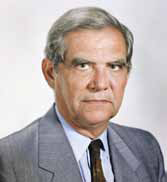
Dr. Martín Piñeiro
1986 - 1994
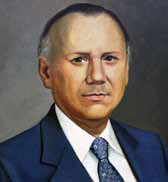
Dr. Francisco Morillo A.
1982 - 1986
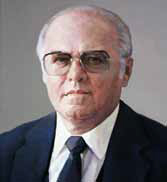
Dr. José Emilio G. Araujo
1970 - 1982
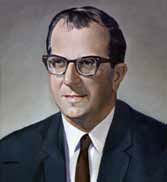
Ing. Armando Samper
1960 - 1969
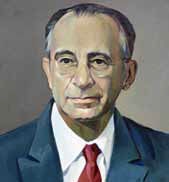
Ing. Carlos Madrid V.
1969-1970 | 1966 - 1967
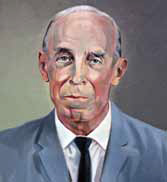
Dr. Ralph H. Allee V.
1946 - 1960
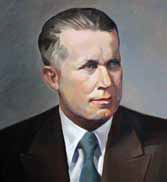
Dr. Earl N. Bressman V.
1942 - 1946